UK To Proscribe Iran's Guards As Terror Group - Telegraph
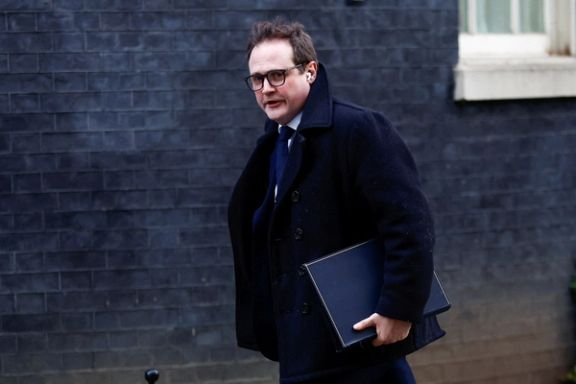
Britain will officially declare Iran's Revolutionary Guard (IRGC) as a terrorist group, the Telegraph reported on Monday, citing sources.

Britain will officially declare Iran's Revolutionary Guard (IRGC) as a terrorist group, the Telegraph reported on Monday, citing sources.
The IRGC announced on December 25 the arrest of seven people allegedly linked to Britain, for their role in recent protests, prompting what could amount to a new hostage situation. The foreign ministry in Tehran accused the UK of a “destructive role” following the news about the arrests.
The move by Britain, which will be announced within weeks, is supported by Britain's security minister, Tom Tugendhat, and Home Secretary Suella Braverman, the report said.
Tehran's allegations of foreign involvement in the protests have been accompanied by arrests of dozens of dual nationals, part of an official narrative designed to shift the blame away from the Iranian leadership.
Foreign Secretary James Cleverly in recent weeks had repeatedly claimed that that the IRGC was already sanctioned “in its entirety.”
The British foreign office tweeted December 27 a clip of Cleverly listing British sanctions against Iran including “the IRGC in its entirety.” Cleverly December 13 said in parliament: “We already sanction the IRGC in its entirety.”
Proscribing Iran's Revolutionary Guard as a terrorist group would mean that it would become a criminal offence to belong to the group, attend its meetings, and carry its logo in public.
The UK Home Office did not immediately respond to a request by Reuters for comment on the Telegraph report.
Britain's Prime Minister Rishi Sunak on Wednesday urged Iran to stop detaining dual nationals, saying the practice should not be used to obtain "diplomatic leverage".
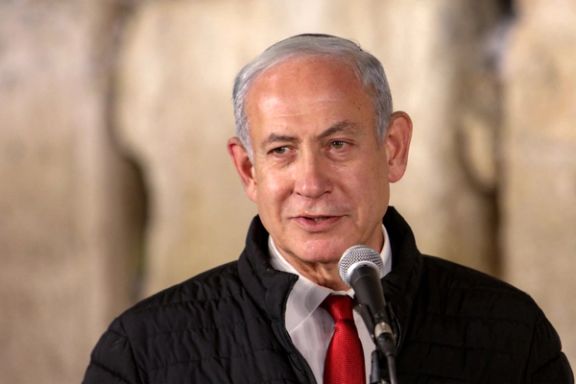
Israel’s new ministers are touting their relationship with the United States, with foreign minister Eli Cohen promoting a broad front against Iran.
Cohen said Monday that the “international community must stop burying its head in the sand when it comes to Iran,” and that Israel should “stop Iran from attaining nuclear capabilities in every way.”
Cohen said the new government led by Benjamin Netanyahu aimed to “deepen ties with European countries and to bolster them compared to past years.” He brushed off any human rights concerns in Europe, attacking Friday’s United Nations General Assembly resolution that sought an advisory opinion from the International Court of Justice (ICJ), the UN’s highest court, on Israeli occupation of Palestinian land. Cohen also dismissed the prospect of Israel facing war crimes suits at the International Criminal Court, which Israel and the US do not recognize. Washington voted against the resolution, which passed 87-26.
Some of the Israeli press has made much of the personal relationship between Netanyahu and US President Joe Biden. Last July, when Biden arrived for his trip to Israel, he told Netanyahu, then in opposition, “You know that I love you.”
While the latest Israeli military intelligence report favors efforts to reach an international agreement over Tehran’s nuclear program, Netanyahu has long rejected such a course, and strongly supported former US president Donald Trump withdrawing from the 2015 Iran nuclear deal, the JCPOA (Joint Comprehensive Plan of Action). While Biden came into office committed to restoring the JCPOA, any tensions over this with Netanyahu are likely to soften as Biden officials place no ‘focus’ on JCPOA talks and extend sanctions on Iran.
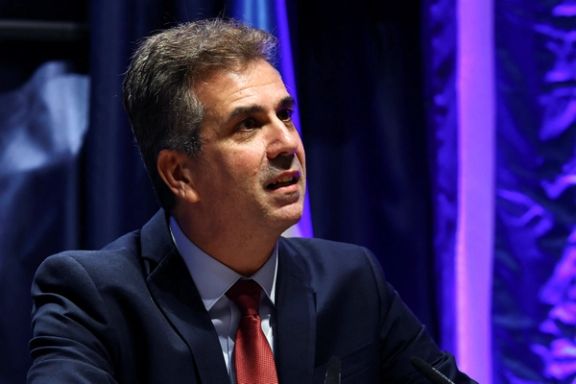
Netanyahu has also said he wants to extend Israel’s Trump-brokered ‘normalization’ agreements with some Arab states, stressing an Iranian threat. But he is unlikely to convince Saudi Arabia since his government now includes ultra-Zionists committed to speeding up Jewish settlement in occupied Palestinian territory. Riyadh voted Friday in favor of the UN resolution referring Israel to the ICJ.
‘Significant contribution to regional stability’
Cohen said Monday he would meet in March in Morocco with counterparts from the ‘normalized’ states – Morocco, United Arab Emirates, Bahrain and Sudan. This would, he said, develop “a significant contribution to security (and) regional stability.” The Times of Israel reported Tuesday that Netanyahu planned to visit the UAE officially for the first time, possibly next week.
After European Union foreign policy chief Josep Borrell highlighted in December dim prospects for the JCPOA, Ali Bagheri Kani, a deputy Iranian foreign minister and Tehran’s lead nuclear negotiator, said Tuesday Tehran would “continue serious and effective cooperation” with the International Atomic Energy Agency (IAEA).
One challenge in JCPOA talks has been Tehran’s demand that the IAEA close an enquiry into uranium traces found at ‘non-nuclear’ sites, an enquiry Iran says followed accusations made by Netanyahu in 2018 but which the agency says concern Tehran’s ‘safeguards’ obligations under Nuclear Non-Proliferation Treaty.
‘The ball in the Western court’
The US and western European states successfully moved resolutions in June and November at the IAEA governors’ board censuring Iran over its approach to the agency, but Russia and China argued this is counterproductive given the main responsibility for JCPOA restoration lies with the US as the party that abandoned it. Russia’s IAEA ambassador Mikhail Ulyanov tweeted Tuesday that “the ball” was in “the Western court.”
Bagheri Kani offered his views on the JCPOA at a ceremony marking the third death anniversary of Iranian general Qasem Soleimani, killed in Baghdad along with nine others January 3, 2020, by a US drone strike. Bagheri Kani stressed Soleimani’s success in “building power by relaying on the capacities in the region” so making “terrorism fail” – referring to the commander’s role mobilizing Iraqi forces against the Islamic State group (Isis, or Daesh).
Bagheri Kani repeated Tehran’s previous threats that the foreign ministry and judiciary were continuing, along with Iraq, to follow routes under international law against “the agents of the assassination” of Soleimani, whose death the UN special rapporteur called ‘unlawful killing.’ The deputy foreign minister gave no details.
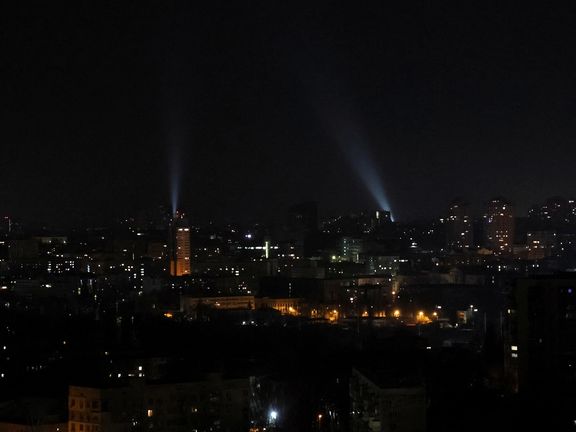
Iran claimed Monday that Ukraine has never submitted any proof of Iranian-made drones being used by Russia in the war, as Russia launched another large attack.
Ukraine said waves of Iranian-made Russian drones targeted infrastructure in Kyiv and surrounding areas on Monday, damaging energy facilities and causing some power outages, officials said, as Russia extended its bombardment into the second day of 2023.
Ukraine’s air force said that its air defense systems destroyed all of Russia's 39 Iranian-made Shahed 131 and 136 drones that targeted Ukraine overnight in what it said was a “massive attack”.
Iran’s foreign ministry spokesman Nasser Kanaani in his weekly briefing implicitly denied the use of Iranian-made drones and said Kyiv has never produced any evidence.
Ukraine said December 13 that it provided Iran with the evidence. "We are not surprised by yet another objection from Iran regarding the supply of weapons to Russia. During the technical meeting, Ukrainian experts provided the Iranians with the sufficient evidence," Foreign Ministry spokesman Oleg Nikolenko said during an interview with Kyiv-based news agency Interfax-Ukraine.
Iran’s decision to supply weapons to Russia has played a major role in the deterioration of its already frayed ties with Europe that has put nuclear talks with Tehran on the back-burner since evidence emerged of the kamikaze drones being launched by Russia in October.
Kanaani also spoke about these talks, having little to offer as a sign of any positive movement. After 18 months of negotiations to revive the 2015 nuclear accord known as the JCPOA the talks broke down in early September. The United States has said i tis not focused on the diplomatic effort any more because Iran presented last-minute extraneous demands.
Meanwhile, nationwide antigovernment protests in Iran have posed the most serious challenge to the Islamic Republic in its 43year history, with the economy in serious trouble. Consequently, Tehran has been showing renewed interest in reviving the nuclear talks, because the process, if successful, could end harsh US sanctions and bring a much-needed financial relief to the embattled regime.
Kanaani insisted that Iran is ready to conclude the nuclear talks based on a draft agreement prepared "after months of difficult talks," referring to what the European Union submitted in August to all sides to wrap up the negotiations. It was at this juncture when Tehran and Washington were giving their feedback to the draft that talks came to a standstill.
Kanaani also tried to put a positive spin on chances of improving relations with Saudi Arabia and Egypt, amid its regional isolation. Iran was not even invited to tripartite defense talks between Russia, Turkey and Syria last week, although it is a major player in the Syrian conflict. It has also not been invited to a similar meeting of foreign minsters to take place in the second half of January.
Asked about why Iran has not been invited, Kanaani simply replied that "Russia, Turkey and Syria are well aware of Iran’s decisive role in the fight against terrorism in Syria and its support for the people and the government [of Syria]".
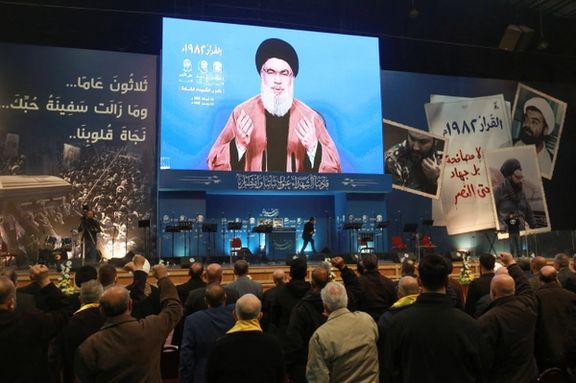
Following reports that Hezbollah leader Hassan Nasrallah had a second stroke, Iranian state media quoted an “informed source” that he has only contracted influenza.
The source told IRNA Sunday that Nasrallah has the flu and is "going through his treatment process", however, independent sources and media in Lebanon have not yet confirmed this claim about Nasrallah's illness.
The Hezbollah leader was scheduled to give a speech to his supporters on Friday, but al-Manar TV, affiliated with Hezbollah, said in a statement that the speech was canceled due to Nasrallah's illness.
After that, unofficial reports were published about Nasrallah's "stroke".
Hossein al-Ghawi, a Saudi journalist, wrote in a tweet that Nasrallah was transferred to a hospital in Beirut after suffering a second stroke.
In recent years, numerous reports have been published about Nasrallah's physical condition.
Four years ago, reports about Nasrallah's "heart attack" were published, but Hossein Amir-Abdollahian, who was the foreign policy advisor to Iran’s parliament speaker at the time, denied it.
Groups like Hezbollah and governments like the Islamic Republic do not provide clear and accurate information about the physical condition of their leaders.
Hezbollah, supported by the Islamic Republic, is recognized as a terrorist group by several countries, including the United States.

An Iranian official has said that around 800 Starlink satellite internet receivers have been imported to Iran, saying the technology would be used more in future.
Head of the Tehran Telecom Traders Union Mehdi Mohebi quoted an “official” who did not want to reveal his identity that 800 Starlink satellite internet terminals have entered the country so far.
This comes as the American tycoon Elon Musk said last week that the use of satellite internet services in Iran has increased and around 100 Starlink devices are active in the country now.
Musk said in a tweet that “approaching 100 Starlinks active in Iran”, three months after he confirmed he would activate the service in the country to help Iranians circumvent internet restrictions imposed by the government amid nationwide protests.
Back in September the billionaire, who is now also a social media player by controlling Twitter, had announced he would activate Starlink in Iran as part of the United States’ effort “to advance internet freedom” and facilitate “the free flow of information” to Iranians.
The Iranian regime has been severely restricting Internet access in general and access to popular social media platforms, such as Instagram, in particular that play a key role in protester communications. These restrictions have caused many problems for those who rely on social media to promote their businesses and hugely damaged e-commerce.
It is not clear who are the importers of the receivers, which the government views as illegal. Most likely, the devices are brought from across the borders by small-time smugglers.
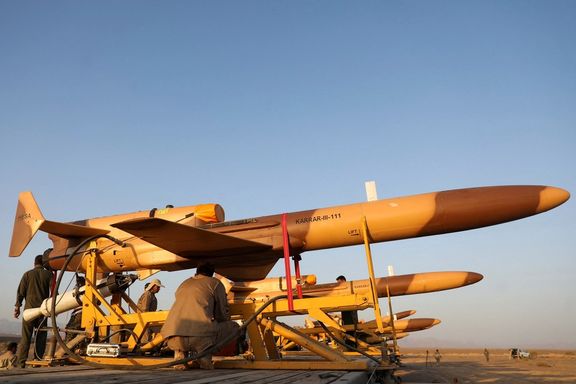
The Iranian military says it launched a drone to warn off a reconnaissance plane trying to approach Iranian war games near the Persian Gulf.
Fars News Agency, affiliated to the Revolutionary Guard, said Saturday that the warning procedure was carried out by Iranian drone Karrar; however, it did not specify the nationality of the reconnaissance aircraft.
The US State Department has refused to comment on the report referring questions to the Pentagon, which declined to comment as well, according to Reuters.
Iran’s military began to test new attack drones in the coastal area of the Gulf of Oman and near the strategic Strait of Hormuz since Thursday as part of its annual drills.
“During the exercises, a P-8 manned intelligence aircraft belonging to extra-regional forces, which had tried to reduce altitude to collect more accurate information from the exercise area, was forced to leave the area by the firing of a Karrar drone by (Iran's) air defense,” Fars reported.
Last week, top Iranian military official General Mohammad Bagheri said the Islamic Republic will continue to develop drones according to its interests and Tehran will cooperate with other countries in this regard.
According to IRNA, Chief of General Staff of the Iranian Armed Forces said the country’s UAVs are accurate enough to respond to any threat endangering its interests.
Bagheri, however, did not name any specific country with which the Islamic Republic is cooperating to develop UAVs.